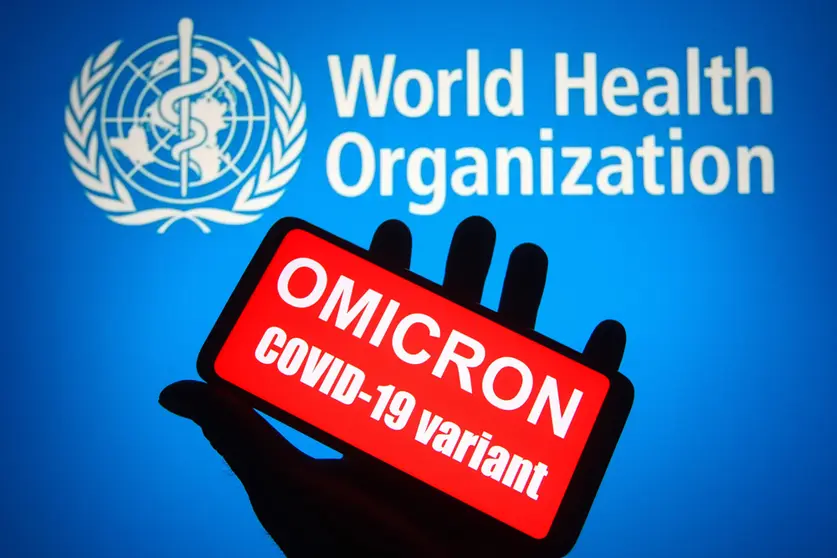South Africa claimed on Sunday that it was being punished for detecting the Omicron variant, as more countries responded with travel bans to the worrying new coronavirus strain.
"This latest round of travel bans is akin to punishing South Africa for its advanced genomic sequencing and the ability to detect new variants quicker," said a statement released by the Ministry of International Relations.
"Excellent science should be applauded and not punished. The global community needs collaboration and partnerships in the management of the Covid-19 pandemic," the statement said, noting that new variants had been identified in other countries with no link to South Africa.
South African officials have entered discussions with countries that have adopted travel restrictions, hoping they will reconsider the decisions, the statement said.
The WHO's regional director for Africa, Matshidiso Moeti, also criticized the measures.
"With the Omicron variant now detected in several regions of the world, putting in place travel bans that target Africa attacks global solidarity," she said.
A statement from her office argued that while travel restrictions may play a role in slightly reducing the spread of Covid-19, they place a heavy burden on the targeted regions.
Botswanan Health Minister Edwin Dikoloti voiced his concerns that southern African countries were being "stigmatized."
Since 26 November, 19 cases of the new variant had been confirmed in Botswana, he said on Sunday. Most of the cases, however, had been "imported" from outside the country.
Cases have also been confirmed in countries including Britain, Germany, Belgium, Hong Kong, Israel and Canada.
13 cases in the Netherlands
On Sunday, Dutch Health Minister Hugo de Jonge said 13 people who travelled from South Africa to the Netherlands had been found to be carrying the Omicron variant.
Switzerland also reported a suspected case in a traveller who returned from South Africa a week ago, news agency SDA reported.
Fears are growing that the new variant could be more transmissible or that it could reduce the effectiveness of existing vaccines, although much remains unclear.
South Africa's medical association has said that people known to have the Omicron variant have not become seriously ill, although many of them are young and therefore less likely to suffer serious illness.
European Commission President Ursula von der Leyen on Sunday called for swift action on the Omicron variant.
"We take this Omicron variant very seriously and we know that we are now in a race against time," von der Leyen said during a visit to Latvia.
She estimated that scientists and manufacturers would need two to three weeks to get a full picture of the variant's strength.
"The general line is: Hope for the best, prepare for the worst," von der Leyen said.
Travel bans
The African Centre for Infectious Diseases meanwhile has said that it opposes travel bans, which it said had not significantly improved the situation.
And the WHO has called for restraint when it comes to travel restrictions.
Nonetheless, the United States, Canada, Turkey, Saudi Arabia and EU member states have all clamped down on travel from southern Africa - and the list is growing.
Pakistan has banned travel from South Africa, Lesotho, Eswatini, Mozambique, Botswana and Namibia as well as Hong Kong, where two people are infected with the Omicron strain.
Indonesia has banned entry to foreigners travelling from 11 African countries - South Africa, Botswana, Namibia, Zimbabwe, Lesotho, Mozambique, Eswatini, Malawi, Angola, Zambia and Nigeria - and Hong Kong. All international arrivals will also have to quarantine for seven days, up from three.
Australia has imposed a similar entry ban for non-citizens arriving from southern Africa. The health authorities there also confirmed the presence of two cases of the Omicron strain on Sunday.
Israel, meanwhile, is to ban all foreigners from entering the country from Sunday evening, after a decision by its coronavirus cabinet late on Saturday, according to media reports.
Morocco said on Sunday it would suspend all international flights into the country for two weeks due to the new variant.
In a bid to get South Africa's outbreak under control, President Cyril Ramaphosa announced the government would begin consultations on making vaccination mandatory for certain activities and locations.
Ramaphosa also used his televised speech on Sunday to lash out at the travel bans.
"We call upon all those countries that have imposed travel bans on our country and our southern African sister countries to urgently reverse their decisions and lift the ban they have imposed before any further damage is done to our economies and to the livelihoods of our people," he said.










